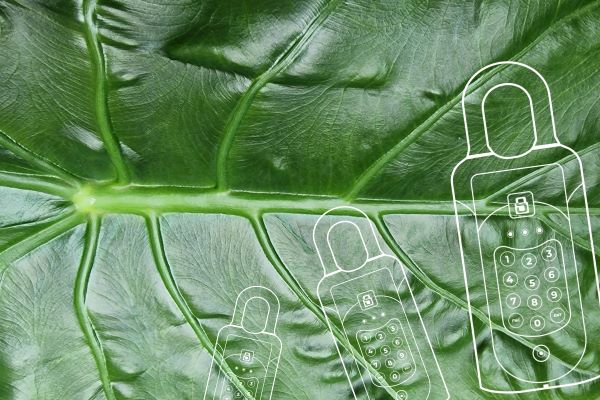
Fine-Tuning Carbon Neutral Strategies in Security and Facilities Management
Achieving tangible sustainability benefits by implementing minor operational changes in keyholding
Sustainability is a hot topic. Everyone knows about it. Governments have active Net Zero strategies and implementation plans, while organisations are establishing plans and activities to reduce their environmental impact. In many instances, it is evident that failing to act can also have an effect on a company’s reputation, culture, and brand perception. In most cases, businesses are not shy about promoting their achievements through different communication channels, understanding that being a pioneer of the Net Zero approach might offer a competitive advantage as well as ‘doing the right thing’.
Even though the UK has been the first major economy to reduce its emissions by half[1], the Climate Change Committee highlights that the country is not on track to hit the 2030 target and urgent actions are required[2]. According to the UK Government’s Net Zero Strategy, transport emissions are among the issues that must be tackled, and the delivery pathway of reducing them includes a widespread usage of zero emission vehicles to decarbonise travel[3].
As a result, some travel-heavy sectors are actively transitioning to electric fleets. Royal Mail, for example, has over 5,000 electric vehicles on the road[4], matched by Mitie with 66% of its fleet now switched to electric[5]. However, this transformation presents considerable challenges for many other businesses.
APPLYING SUSTAINABLE PRACTICES TO SECURITY AND FM TRAVEL
Both Security and FM industries heavily revolve around travel, whether it is for patrolling or delivering services at customer premises. Managing security patrol fleets is particularly complex in terms of sustainability; in order to respond swiftly to alarm callouts, patrol vehicles must be equipped with heavy key lockers that hold a large number of keys. This also implies that vehicles must be reinforced to protect such valuable stock, making it exceptionally difficult to transition to lighter EV alternatives.
FM service delivery may appear less polluting in this respect. However, travel and time are still required for key collection, especially when subcontractors are involved in the process. Excessive emissions may be passed on through the supply chain; in practical terms, the emissions are not actually reduced and the impact on the environment remains the same.
The views on the topic seem to be quite polarised across the security industry. The “Sustainability and the Security Industry” survey by asmag.com-Hivkinson reveals that 47% of respondents view green and low carbon initiatives as very important while 30% believe they are fairly unimportant[6]. According to the Statista report, nearly a fifth of physical security professionals worldwide may be concerned about the initial cost and return on investment when adopting low carbon solutions[7].
With such statistics, it is no surprise that carbon offsetting is becoming so popular as it does not require any operational change while ‘green claims’ can be made. This approach is questioned by both Greenpeace and the Institute of Applied Ecology, questioning the effectiveness of the method and calling it “lip service to action”[8].
Yet the tables appear to be turning in recent years, and a serious approach to sustainable actions is becoming a must. The end users are stepping up and becoming more demanding in terms of service provider sustainability. For example, Better Buildings Partnership (BBP), a collaboration of leading property owners focused on improving sustainability of commercial buildings, has created guidance notes for property managers on embedding sustainability into security services procurement, focusing on both environmental and social issues[9].
Therefore, it only makes sense that both security and FM firms take feasible actions towards ensuring a more sustainable business model in order to secure the contract at the tendering stage. While many corporate activities can contribute to carbon neutrality, one particular element associated with travel can have a positive impact on the journey to their Net Zero targets. Changes to the keyholding model, which is often overlooked as an insignificant element of the overall operational mix, can reduce travel by half and enable the implementation of an EV fleet.
THE TRIED AND TESTED APPROACH:
A case study of CO2 reduction through keyholding improvements in FM delivery
With the UK Government’s commitment to Net Zero, it was only logical for each department to set specific targets to ensure that this goal is met across all their services.
When selecting an external company for FM service delivery, most of which required contractor after-hours access to public buildings, one Government department wanted to ensure that carbon emissions were taken into serious consideration when awarding the contract. They were aware that demonstrating strategies for reducing emissions would benefit them as well as create a chance for their suppliers to do the same.

As a solution, they opted to implement a new keyholding method by Keynetics, which allowed them to store keys at the point of entry in commercial grade secure key safes at 280 locations. The Keynetics key management solution incorporates mobile access via an app and a platform for remote access management that also allows audits, which was a critical element for this tender. Gathering visit data and analysing metrics, such as visit duration, vehicle utilisation, and travel time between facilities and key storage areas, allowed this Government Department to quantify the improvements in service metrics and reductions in carbon emissions.
The deployment of the Keynetics key management solution resulted in a 50% decrease in visit-related trips and a corresponding 50% reduction in carbon emissions, removing 784 tonnes of CO2 within the first year of the implementation. Furthermore, the demand for service vehicles dropped with staff adopting alternative modes of transportation to required locations.
FURTHER DEVELOPMENTS:
Alarm response provider transitioning to EV fleet
Meanwhile a globally recognised security company adopted Keynetics’ SentriGuard® solution at different customer sites to improve their response times. Not only did it provide improvements to their keyholding approach, it also helped to achieve environmental benefits and reduce operational costs.
In Germany, the Keynetics system is being used by a world-leading provider of integrated electronic security solutions to reduce the number of keyholding patrols by 40% over the next three years.
THE SECURITY FACTOR:
Conducting Due Diligence
Despite all of the benefits, one of the major obstacles when discussing key storage at the point of entry is dispelling objections around the security of key safes. To address this understandable and genuine concern and demonstrate that Keynetics key safes exceed all industry requirements, the company has earned LPS 1175 C1 and C3 rating certificates from the Loss Prevention Certification Board (LPCB).
The certification process includes audits of all product elements, from the initial design and manufacturing site inspections to rigorous attack tests conducted by BRE. This has led to adoption of SentriGuard® across multiple sectors, including Retail, Banking, Vacant and Void Property Management and Commercial Real Estate, to name a few.
Therefore, while selecting an access control system for a sustainability score, the procurement team must complete thorough product accreditation checks as well as examine the certifying body’s reputation.
View Keynetics’ Loss Prevention Standard (LPS) 1175 certificates on the RedBookLive and learn more about the SentriGuard key management solutions.
Resources:
[1] UK half way to net zero -Department for Energy Security and Net Zero and The Rt Hon Claire Coutinho
[2] Climate Change Committee – 2024 Progress Report to Parliament
[3] 2. The journey to Net Zero – GOV.UK (www.gov.uk)
[4] Sustainability – Royal Mail
[5] Mitie reaches 5,000 EV milestone – FMJ
[6] Green and sustainable practices: How much does the security industry know? – HIKVISION
[7] What can be challenges/barriers to adopting green and low carbon solutions in the security industry? – Statista
[8] What is carbon offsetting? – World Economic Forum
[9] GN 9.6: Embedding sustainability within security services – BBP
